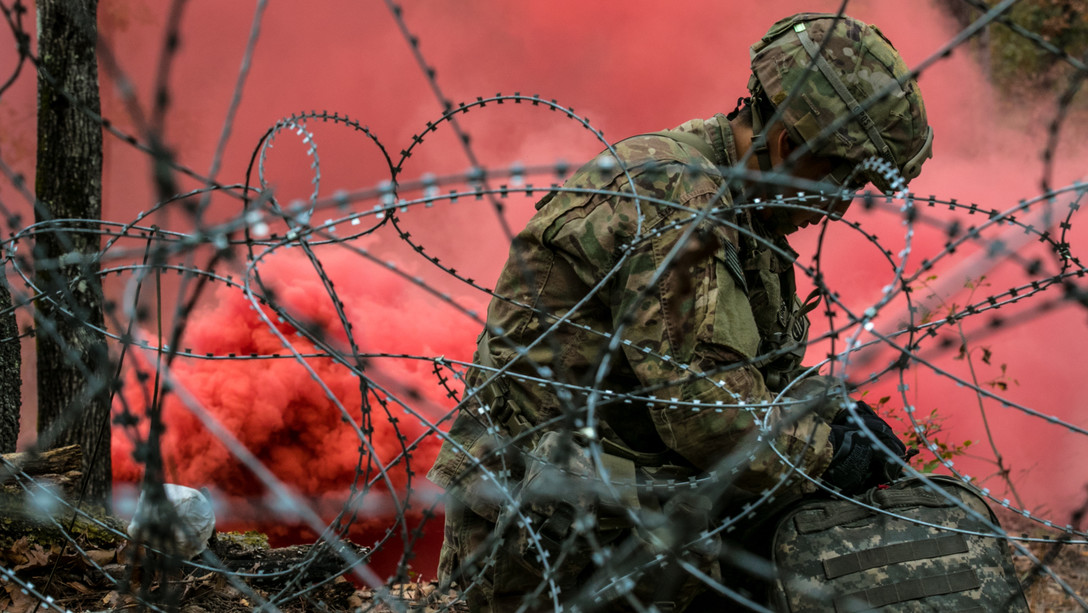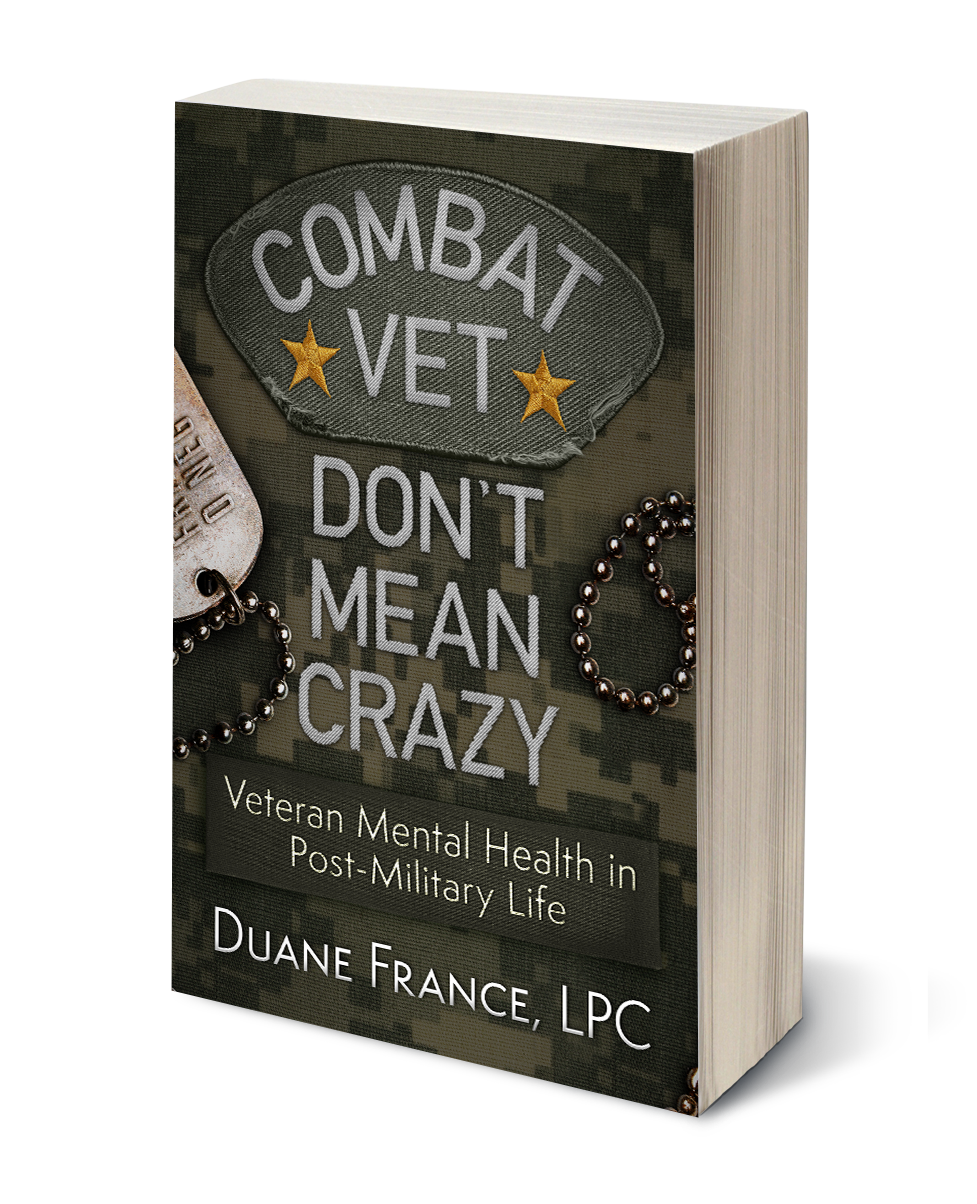
A combat medic assigned to the 82nd Airborne Division readies his equipment U.S. Army photo by Sgt. Dustin Biven
A colleague once told me a story of frustration that I’ve heard from many veterans in therapy. The colleague talked about a veteran he was working with; the veteran said, “People want to go to the movies and see the combat stuff…American Sniper and all that. But if I talk about the same thing at the neighborhood barbecue, they look at me like I’m crazy.”
A lot of veterans I talk to feel the same way; they see the community rally around the concept of veterans, but don’t always feel the same support for themselves individually.
We can say all we want that we support veterans returning from war, but do we really? Does the community rally around the flag and thank veterans for their service, but when it comes to real action, is it there? Unfortunately, there is little data to back up the prevailing wisdom of what veterans believe to be true. There do not seem to be studies on current public perceptions of veterans; there are some polls that show that perceptions have shifted from how people viewed Vietnam Veterans, of course, but actual research on the true public perception of military service seems lacking. Regardless of the research-based proof, however, I’ve heard repeated examples of the proof of this.
Thank You For Your Service
“Thank you for your service” represents the banality of society’s understanding of the nation’s wars and the men and women who fought them. – Marine Corps veteran Sebastian Bae, Heroes & Monsters: War’s moral injury
A Vietnam Veteran recently told me how it surprises him that current-era veterans don’t want to hear “thank you for your service.” In his mind, Vietnam Veterans would have loved to hear that when they returned home; but he also recognized that, while the words are there, they often seem meaningless. I serve as a mental health provider for our local Veteran Treatment Court. The presiding Judge, who is a combat veteran himself, has a statement that he tells every veteran entering the program. “Thank you for your service,” he says. “I know that doesn’t mean much from people who have never served, but coming from a fellow veteran, it means a lot.”
My reaction is similar to many of my fellow Iraq and Afghanistan veterans. I do appreciate the intent behind the sentiment, but it bothers me. When I happen to bring up my military service in a conversation, it is sometimes to add context to what I’m saying or emphasize a point; but, in the middle of what I’m saying, I’m invariably interrupted with the “thank you for your service” line. Thank you, I appreciate it, but I don’t want your appreciation, I want your understanding. Many veterans appear to feel the same way.
The NIMBY Effect
The concept of the NIMBY effect, which stands for “Not In My Backyard,” is often applied to facilities, infrastructure, and services. We know we need a place to dump our garbage, but we don’t want the town dump in the middle of the business district. Often, this makes sense; communities zone areas as industrial and residential for a reason. I grew up a mile away from the St. Louis Airport, and I can tell you, the sounds of airplanes overhead were constant. The NIMBY effect is described as opposition to those things that are socially necessary, but have a negative connotation. Garbage dumps, substance abuse recovery centers…and veterans?
This goes back to the concept of “we love veterans…but from afar.” The wider population knows, in general, that a standing military is socially necessary, and military service in general has a positive connotation…but veterans in the specific have a negative connotation. The stereotypes of Villain, Victim or Hero. The crazy homeless combat vet.
Veterans In The Workplace
Veterans often hear of other veterans who struggle in the workplace due to common perceptions. I often describe it as, “We love veterans…unless we know one sitting in the cubicle next to us.” Veteran Garrett Wilkerson describes his own experience with this in his article, “On Being ‘One of Those Weird Veterans’ in the Workplace“:
…a coworker responsible for training me began using questionable language when explaining things to me. He would say things like “if you feel like you’re going to have a moment,you can take a walk around the building to cool off”. Do people here have “moments”? Is that a thing? On another occasion he told me that if I ever felt overwhelmed with all of the new information, I should be mindful to not “blow up” on other employees. I thought this was strange given that this coworker knew very little about me or my temperament, outside of the fact that I was a veteran.
Researchers have looked at this issue. In a study that looked at whether employers were prepared to hire, accommodate, and retain veterans with disabilities in the workforce, the research shows that wanting to support veterans is not enough. There are gaps between desire and action.
“Overall, our findings indicate that, though employers do have good will in this area, goodwill alone may not be enough to ensure that workplaces are geared up to enable [veterans with disabilities] to fully contribute their talents on the job.” – Rudstam, Gower and Cook,Beyond yellow ribbons: Are employers prepared to hire, accommodate and retain returning veterans with disabilities?
The fact is that the application of support for veterans does not always coincide with the expressed support for veterans.
The Veteran Role in Public Perception
I get the sense that this article may seem a bit rant-ish. And it probably is, because this is a frustration that I hear from many veterans in different areas. What role do veterans play in the public perception, however? The more the public misperceives veterans, the more veterans pull away. That simply contributes to the growing gap between those who served and those who haven’t. Just as with any other awareness, the individuals who make up the group that wants people to understand have a responsibility to conduct themselves in such a way that does not perpetuate the stereotype. In this way…stepping into the gap…we can change perceptions individually and as a whole.
Want to keep up with all of the Head Space and Timing content? Subscribe Here
 Want to learn more about veteran mental health? Check out the latest Head Space and Timing book,Combat Vet Don’t Mean Crazy: Veteran Mental Health in Post-Military Life
Want to learn more about veteran mental health? Check out the latest Head Space and Timing book,Combat Vet Don’t Mean Crazy: Veteran Mental Health in Post-Military Life. Check out what people are saying about it:
Overall ‘Combat Vet Don’t Mean Crazy’ is a very well written, thought-provoking book. As usual, SFC France did a fantastic job! Being a combat veteran myself who has served in both Iraq and Afghanistan, I feel there’s a lot of powerful information and tools in this book that you can put to use immediately – even as you’re reading this book. Definitely an excellent read on those days of rest and/or distress. – J.C.



3 Comments
Nelson Ormsby · January 24, 2019 at 6:34 pm
As a tree-hugging civilian who came of age during the Vietnam War, raised by a non-Combat arms WW2 Veteran, and growing up in Baltimore among 29th ID veterans who found themselves on Omaha Beach June 6, 1944 and rarely said anything about their service, it just never resonated to “thank them for their service”. So as an adult, walking to my office at BWI Airport past the Military Airlift Command or the USO post-9/11, instead I’d ask “you headed downrange or coming back?”, and if the latter, I’d say “it’s good to have you home.” If they were deploying I’d ask them to do me a favor. With typically a quizzical look I’d get “what’s that?”, to which I’d implore “please keep your head down, unless situational awareness suggests looking up a better idea”. That usually started a great conversation!
After once welcoming a Trooper home, he disarmingly allowed in return “thanks, but my buddy didn’t”. I then asked if maybe he did come home because, by referencing him in the response to me, his brother clearly remained in his head and his heart: “Sure sounds like you brought him home to me”. Then he talked and I listened.
So whenever I see a vet at Arlington during my visits there, in line at Chick-fil-a or wherever, wearing a hat, pin, or some other suggestion the uniform once worn (and in a sense, never taken off), I first welcome them home. More times than not, that starts an exchange, whereas “thanking them” for what I frankly have little to no understanding about, a conversation stopper and indeed, more akin to the empty exercise I see at NFL stadiums during the “Salute to Service”. Absent real engagement , that “salute”, in the form of a nice standing round of applause, looks and feels more akin to civilians seeking “cheap grace” to me, and thus just another wedge driving “we” into “us” and “them”. After all, whatever was done, and not done, while downrange, was done in the name of the collective “we”. My fellow life-long civilians would be well advised to remember that, and act accordingly when engaging those active service, as well as those proud holders of the coveted DD-214. One team – one fight!
Duane France · January 25, 2019 at 5:07 am
Nelson…my sincere appreciation for the comment! I failed in this post to recognize that it’s not ALL just an unaware and uncaring public; you, and many others who have come to share this blog and podcast, are certainly the exception. And there are many more like you than most veterans think.
The appreciation that I have for your respect for those who served is equal to, if not greater than, my frustration at empty words and hypocritical actions of others in our communities. Many thanks!
Public Support for Veterans and Veteran Mental Health — Head Space and Timing · January 31, 2019 at 4:55 am
[…] wrote recently about how the public perception of veterans can impact veteran mental health. The constant, and seemingly disingenuous, “thank you for […]
Comments are closed.